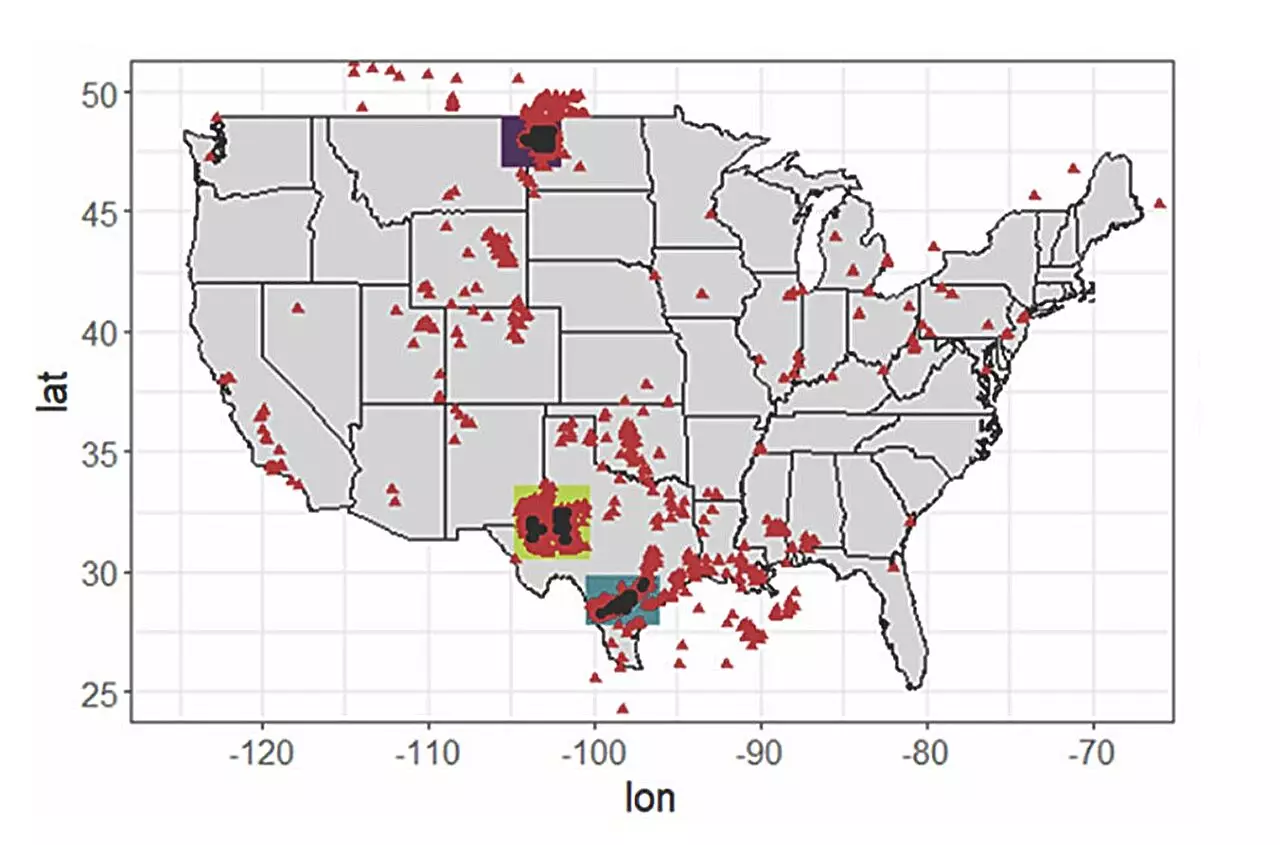

Natural gas flaring is a common practice in many parts of the United States as a means to dispose of gas byproducts during oil extraction. This process involves burning the gas, converting hydrocarbons to carbon dioxide and water. While this helps reduce the climate impact and the safety concerns associated with natural gas on site, it also produces nitrogen oxides (NOx), which have direct and indirect effects on air quality. Nitrogen dioxide (NO2), a form of NOx, is regulated by the U.S. Environmental Protection Agency (EPA) due to its influence on public health and the environment.
Despite the prevalence of flaring operations across the U.S., there have been few direct measurements of NOx emissions from these flares. Currently, the EPA relies on emission factors, which are static values multiplied by activity data provided by flare operators, to gauge NOx emissions. The lack of accurate measurement data raises concerns about the true amount of NOx produced by flaring operations.
To address this gap in knowledge, a research team led by the University of Michigan conducted a study as part of the F3UEL project. The F3UEL project aims to provide data-driven updates to U.S. oil and gas emission estimates. The team collected data from three major regions: Eagle Ford in Texas, Permian in Texas and New Mexico, and Bakken in North Dakota. These regions account for over 80% of gas volumes flared in the U.S.
The research team used a small aircraft equipped with high precision instruments to fly close to the ground in the selected regions. This approach allowed them to intercept the mixed combustion plume from the flares and collect data on NOx production. A total of 480 airborne intercepts were conducted, and region-based estimates of flaring gas volumes were used to estimate NOx flaring emissions for each region.
The study revealed that while the median emission factors for each region fell within the range of values used by the regulatory agency in Texas, there were flares that generated significantly higher rates of NOx emissions. In fact, 20-30% of the flares were responsible for 80% of basin-wide flaring NOx emissions. This means that a small number of high-emission flares have a disproportionate impact on air quality.
The findings of this study suggest that the current understanding of the air quality impact of flaring operations may be underestimated. Flares emitting excessive amounts of NOx could have a greater impact on air quality than previously thought. This not only affects the health of workers on site but also the estimated 17.6 million Americans who live within a mile of active oil and gas wells.
The research team concludes that reducing the volume of gas flared could have significant climate and air quality benefits. By addressing the high-emission flares identified in this study, the overall air quality impact of flaring operations could be minimized. This work, combined with previous results from the F3UEL project on methane emissions, emphasizes the importance of reducing flaring to improve both climate and air quality.
Natural gas flaring has a considerable impact on air quality and public health due to the production of NOx emissions. The study conducted by the University of Michigan-led research team shed light on the true extent of NOx emissions from flaring operations in three major regions in the U.S. The findings highlight the need for accurate measurement and regulation of flaring practices to mitigate the adverse effects on air quality and protect the health of workers and nearby communities.
In the world of pharmaceuticals, innovation often hinges on finding new compounds that can lead…
In the heart of the Amazon basin, drastic climate changes present an alarming reality that…
Air fryers have rapidly surged in popularity, captivating home cooks and culinary enthusiasts alike. When…
In an era where technology and social media reign, the importance of sleep often takes…
In an era where environmental consciousness is paramount, the maritime industry has long been scrutinized…
Radionuclides, often relegated to discussions surrounding nuclear energy and radioactive waste, have far-ranging implications for…
This website uses cookies.